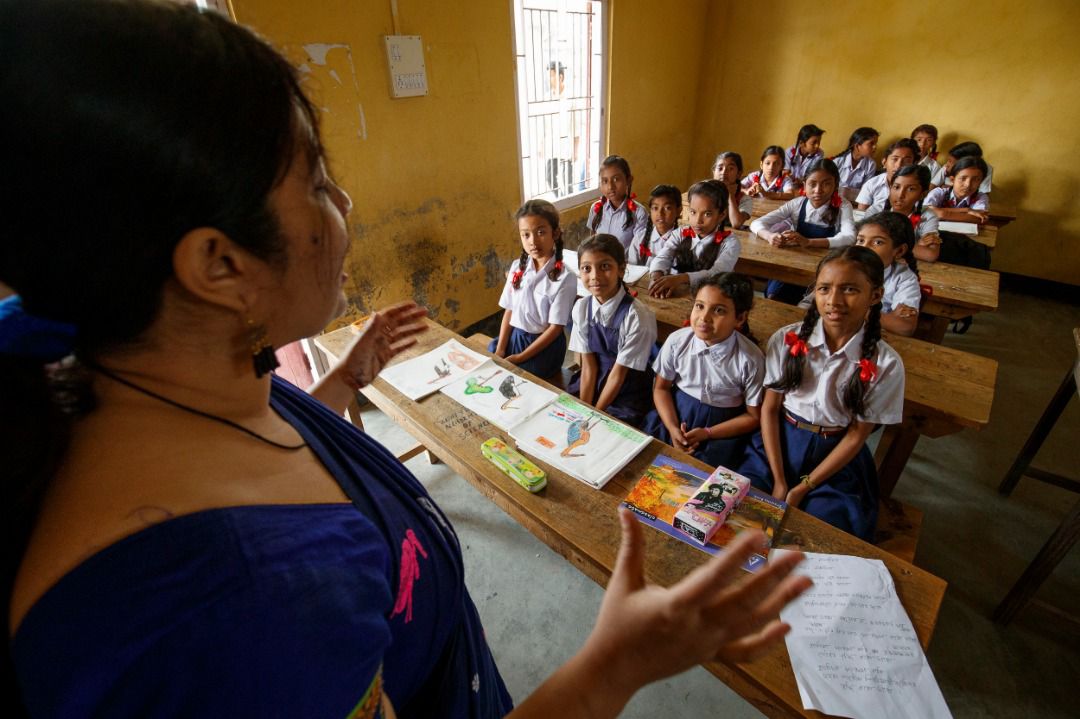|
Getting your Trinity Audio player ready…
|
Real women, real stories and real impact; Spearheaded by international NGO, How Many Elephants, the pioneering World Female Ranger Award gives international recognition to a female wildlife ranger who has shown exemplary service and commitment to conservation.
Purnima Devi Barman is a conservationist and biologist changing people’s perceptions of the Greater Adjutant Stork. Often referred to as a disease-carrying pest, an ugly, filthy bird or a bad omen, Purnima and her ‘Hargila Army’ have helped turn this bird into a cultural icon in Assam, India.
Purnima built the Hargila Army from small beginnings, now a team of over 10,000 women working together to protect the critically endangered Greater Adjutant Stork. They keep a strict vigil on the nests as habitat loss, poaching and poisoning are all significant threats to the bird. Purnima also built the world’s first artificial breeding platform where chicks can hatch safely to address the birds’ shrinking habitat problem. In addition, Purnima believes she has fostered a pride in the rare stork by associating positive festivities with the bird. “Today many women join because it is a matter of prestige to be a part of the Hargila Army”, says Purnima.
Founder of How Many Elephants, Holly Budge, launched the World Female Ranger Award last year in conjunction with her pioneering initiative, World Female Ranger Week (June 23-30th). Holly and her team have identified over 5500 female rangers around the world. Holly says, “We are delighted to give recognition to Purnima through this award, plus a grant kindly sponsored by the Globe Foundation. She is an inspirational woman making tangible real-world impact; Protecting wildlife, uplifting communities and empowering women.”
“I’m humbled, honoured, and excited to be receiving the World Female Ranger Award 2022. I convey my humble gratitude for recognizing the need for protecting endangered Assam’s Hargila and similar species. My acceptance of this award and honour would not be complete without acknowledging the ground breaking work by courageous women rangers and eco-guards from all over the world. Bringing women to the forefront in conservation movements can create miracles as our Hargila Army has done. I hope we can work together towards more gender equity along with environmental sustainability. There are many challenges still and we are determined to face them and win through”
says Purnima.
Over the last 2.5 years, the pandemic has crippled tourism and funding globally for conservation projects, leaving some species even more vulnerable. So, the often-challenging work of rangers is paramount right now. Day and night, female rangers around the world patrol wilderness areas, monitor wildlife, seize snares, work with communities, battle social stigma and, in some cases, arrest poachers, all to save iconic species from extinction.
Less than 11% of the global wildlife ranger workforce is female. With women being natural communicators, protectors and investing their earned income in their families, bringing gender equity into the workforce enhances community conservation efforts and relationships.
Dr Gladys Kalema-Zikusoka, an ambassador for World Female Ranger Week, says, “gender equity in the conservation arena is such an important and prevalent topic. There is still much work to do but World Female Ranger Week and this award, plays a key role in raising awareness of the work of female rangers and women in conversation in the broader picture.”
A special mention goes to Caroline Olory, the first female Conservator of Park for the National Park Service in Nigeria. Through Caroline’s efforts, alongside her team, she has improved park protection and conservation in Cross River National Park and Old Oyo National Park. Caroline has increased the involvement of women in decision-making in communities surrounding the parks and has strengthened park/community relationships with state governments and NGOs. She is a role model to girls in the surrounding communities and schools, piquing their interest in education and conservation. Often referred to as the “Iron lady of wildlife conservation”, Caroline has delivered lectures on the role of women in wildlife conservation to many university students in Nigeria.
Links:
